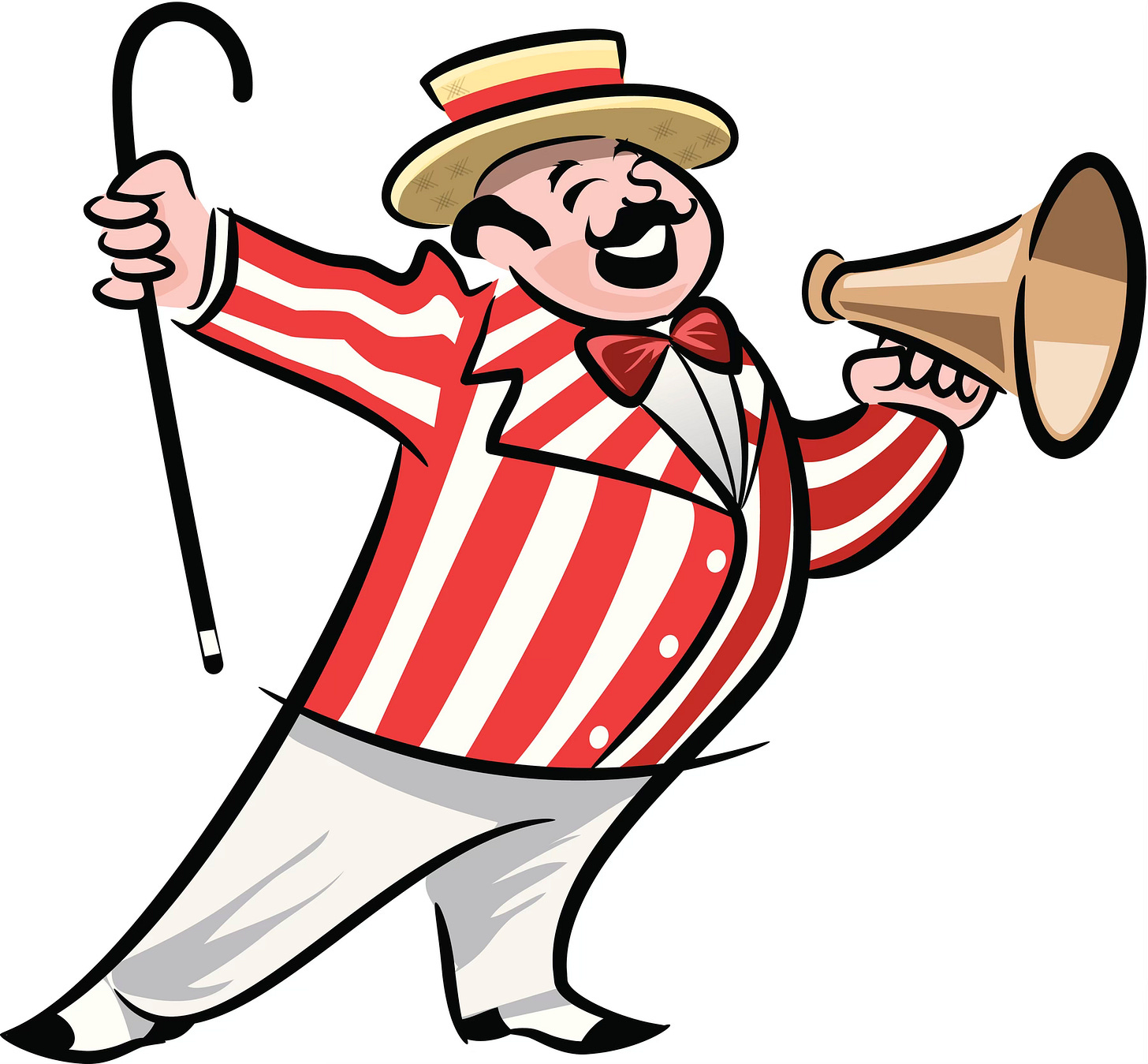Stop Calling Con Men Great Marketers
Equating the two diminishes the skill of real marketers--and hands fraudsters a badge of honor they haven’t earned
We’ve gotten sloppy with language. Social media didn’t start the slide, but it certainly accelerated it—forcing complex ideas into bite-sized phrases, acronyms, and emoticons, all while blurring distinctions that used to matter. Over time, words that once carried precision have been flattened into interchangeable mush, and concepts that barely belonged in the same category have been treated like synonyms.
We confuse attention with influence, hype with traction, and charisma with credibility. We talk about growth when we mean exposure, and treat branding like it’s just a well-designed logo. These aren’t harmless mix-ups—they subtly change how we think, who we trust, and what we celebrate.
One distortion in particular irritates me more than most. For years, we’ve heard too many non-marketers praise a handful of other non-marketers as “great marketers.” And in doing so, they’ve quietly corrupted the meaning of the label—blurring the line between two entirely different characters: the person who creates real value by solving real problems, and the con man chasing a quick buck.
First, if you’re not a marketer, there’s a good chance your concept of marketing begins and ends with promotion. Is promotion part of marketing? Sure. But is it the whole thing? Not even close. (More on that in a separate article.) And if you’ve been trained to think of marketing solely as promotion, you’re probably also wired to confuse good promotion with loud promotion, one of the con man’s most utilized—and sadly—effective tools.
Second, and more importantly, “great marketing” isn’t some vague label you just slap onto anyone who draws attention. It actually means something. Philip Kotler—often called the father of modern marketing—defined it as “the science and art of exploring, creating, and delivering value to satisfy the needs of a target market at a profit. It is the art of helping your customer become better off.” That’s not what con men do. That’s what they pretend to do.
Contrast marketers with con men. While both may share a profit motive, the path the con man takes to get there couldn’t be more different.
Great marketers look for problems to solve.
Con men look for marks to exploit.
Great marketers earn trust and build lasting value.
Con men chase quick hits and fast exits before they’re found out.
Great marketers dig into complexity to craft real solutions.
Con men sell overly-simplistic answers to problems they barely understand.
Great marketers are proud to stand behind what they sell.
Con men are indignant when they’re held accountable for their con.
Great marketers use their ears—listening to customers to improve and evolve.
Con men rely on their mouths—overwhelming skepticism with noise and bravado.
And as if the original deception weren’t damaging enough, the con man will target the same mark repeatedly—exploiting psychological biases like the sunk-cost fallacy to keep them hooked. This is where our subconscious fights to defend our self-image by downplaying the initial mistake, but also makes us less likely to take protective action—like cutting our losses and walking away once we see the fraud for what it is.
So if we want to glorify con men for how cleverly they separate people from their money, attention, or votes, that’s a choice we can each make. But let’s be clear about one thing: don’t call it great marketing! And don’t rob real marketers of the credit they’ve earned—by solving real problems without resorting to deception.

